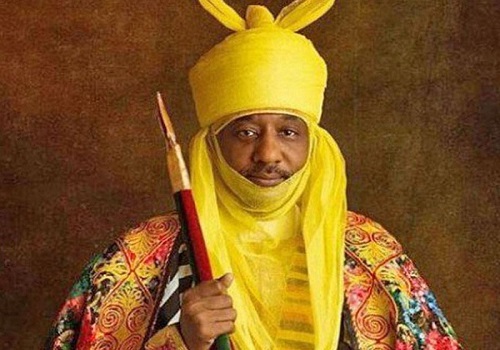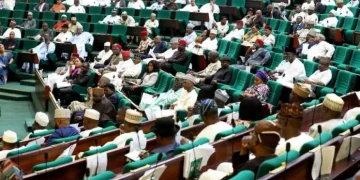Former chairman, Governing Board of the Projects Development Institute (PRODA), Enugu State, Comrade Daniel Onjeh, has expressed hearty felicitations with His Royal Highness Muhammadu Sanusi II, on his reinstatement as the Emir of Kano Emirate by the governor of Kano State, Abba Yusuf.
In a press statement issued on Thursday, Comrade Onjeh opined that although royal fathers are expected to eschew partisanship in their stewardship and approach to issues generally, nonetheless, whenever the occasion demands, they must rise up and speak on behalf of the people they represent.
Onjeh further stated that any attempt to gag or straitjacket any traditional leader will be totally undemocratic because as citizens, they equally enjoy fundamental rights as guaranteed by relevant sections of the Constitution of the Federal Republic of Nigeria, including freedom of speech; provided what they say is not subversive to the state but in the overall interest of the state and its citizens.
Furthermore, Comrade Onjeh, who was the senatorial candidate of the All Progressives Congress (APC) for Benue South in the 2023 general election, stated that in recent times, traditional leaders across Nigeria are mostly very educated people, with some of them being notable professionals with impressive track records in their respective fields of endeavour before coming to serve their people in the traditional council. He added that some traditional leaders have also served their societies for very long, therefore, they are experienced enough to contribute to the development of the society.
“Therefore, if they have any idea or opinion that can contribute to the healthy growth and development of the society or nation, they should be free to express themselves.
“How can we expect someone of His Royal Highness Sanusi Lamido Sanusi’s education, training, experience and exposure, a consummate economist and former Governor of the Central Bank of Nigeria, not to lend his voice to topical issues like the economy of Nigeria? In fact, he owes the country the patriotic responsibility of speaking up whenever things are going awry, or when anything threatens the peace, unity and development of the nation,” stated Onjeh.
While urging other emirs and traditional rulers across Nigeria to always feel free to contribute their decent quotas to topical national issues rather than dwelling exclusively on local issues within their domains, Onjeh noted that the world is now a global village, hence the scope of work of members of the traditional institutions should transcend settling communal disputes, to anything that will contribute to the safety, welfare and wellbeing of their wards and communities at large.
According to Onjeh, the control which the various state governments have over traditional rulers in their respective states is for supervisory purposes, and not for vindictiveness.
“Indeed, the control of state governments over their tradition institutions is also to provide checks and balances, so that erring traditional rulers can be called to order or be disciplined accordingly. So when traditional rulers have done something wrong, it will be clear to the members of the society that they have done something wrong and deserve to be reprimanded. Such control must not include when a traditional ruler is expressing his honest opinion on what Nigeria ought to be, or what his society needs to be like,” added Onjeh.
Comrade Onjeh, who is a former student activist and one-time President of the National Association of Nigerian Students (NANS), further stated that the case of Emir Sanusi II’s sack and subsequent reinstatement was a clear proof that no matter how long justice is suppressed, it will certainly prevail in the end. He added that it is a good lesson to all authorities who make arbitrary laws that they intend to wield as the big stick against dissenting voices.
“What has just happened in the case of Emir Sanusi is very good for our democracy, because it has further established that any anti-people law enacted by a previous parliament, can be upturned by a succeeding one,” stated Onjeh.
Onjeh added that Emir Sanusi II’s reinstatement was a huge lesson for all state governors who may wish to create laws for their selfish interests, or as a leeway to settle political scores.











